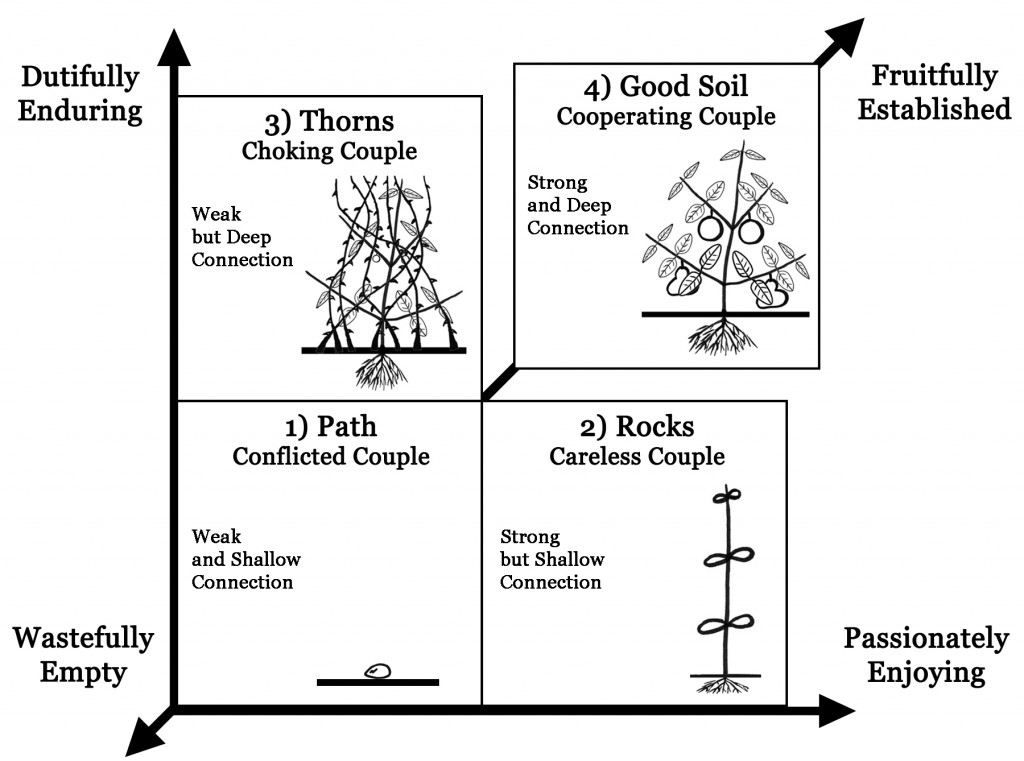God is reliable but not predictable–He does not change in shifty ways (James 1:17). Have you ever lost something important and then felt a sickening panic when you couldn’t find it? Ever felt like you misplaced God? Nothing is lost if you know what you are looking for, where to find it, and how to detect it.
In the Fellowship of the Ring, Bilbo has a moment when he can’t find The Ring. He looks all over for it and works himself into a frenzy. But then after only a few minutes, he finds it in his pocket (where he left it).
When you’ve lost something important, a few anxious minutes can feel like an eternity. When this happens, more than a physical sensation is involved. A spirit of fear can take hold. You can almost touch it like you are walking through a dense cloud of it. Before you know it, you can believe you are doomed.
God is Reliable (He’s not hiding or lost)
In Luke 15, Jesus tells several parables about us being lost and the rejoicing that happens when we repent and move toward God. While Jesus never worries or panics, it is clear that He misses us when we become distracted with life and forget about Him.
From our perspective, isn’t it usually the other way around? We think we know where we are and we declare that God is missing.
I can’t feel God anymore. God, are you there? It doesn’t feel like you are there. Don’t you care that I’m suffering?
This reminds me of Mary when her brother Lazarus died. “Lord, if only you had been here, my brother would not have died” (John 11:32). She is hurting and disappointed. But she knows that God’s presence makes all the difference.
God is Reliable (but you might not feel His presense)
When God is present, it is first a spiritual experience and second an emotional experience. If you find yourself all alone in the sense that you can’t feel God’s presence, you might be tuned to the wrong channel.
If you only go looking for God with your feelings, you might miss Him. He’s always there, but you can’t always feel Him. You can read the Bible and know He will never abandon you. But I’m talking about something different.
When Jesus left us, He sent His Holy Spirit to be with us.
And I will ask the Father, and he will give you another Advocate, who will never leave you. He is the Holy Spirit, who leads into all truth. The world cannot receive him, because it isn’t looking for him and doesn’t recognize him. But you know him, because he lives with you now and later will be in you. No, I will not abandon you as orphans—I will come to you.
John 14:16-18 NLT
God is Reliable (your salvation is secure)
God will never leave you. If the Holy Spirit is a deposit to guarantee your salvation, then it isn’t possible to lose your salvation. There are definitely times when circumstances can convince you God is gone. The enemy is a deceiver. He wants to mislead you so you will become discouraged and stop living for God. You can’t lose your salvation, but you can “misplace” it.
God is right there “in your pocket” but if you panic, you won’t be able to sense Him. If you are blinded, God could be right there with you but, if you panic, you can blind yourself to His presence and stray into a dangerous mental state. If you can’t seem to see God and can’t believe He is with you, check if your eyes are covered with lies (real eyes realize real lies).
As believers, we can sense God’s presence without necessarily feeling God’s presence.
I believe in the sun even when it’s not shining. I believe in love even when not feeling it. I believe in God even when He is silent.
Anonymous
The next time you feel like God is absent, try reaching out with your spiritual senses. Affirm God is with you spiritually. Then ask the Holy Spirit to teach you about God’s truth and love.
This post is part of a series on eternal security. You can read the introductory post: eternal security means full assurance of salvation.
Image by Gordon Johnson from Pixabay
















